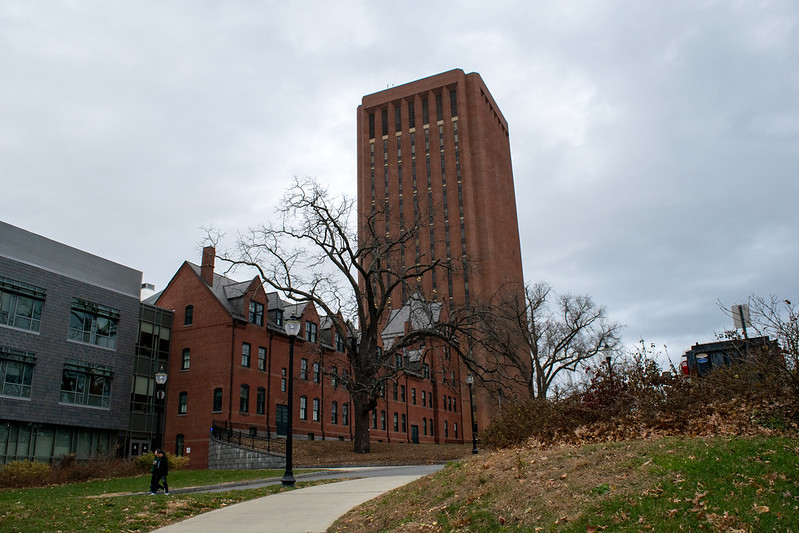The cost of college is the highest it’s ever been. Attending a university in the United States requires a small fortune, and it results in a large portion of college students leaving school in debt. Higher education wasn’t always as expensive as it is currently, mostly because higher education in the 1960s and ‘70s received more government subsidies than they do now, but that changed with the advent of neoliberalism in the 1980s.
In fact, higher education was so democratized that the business class sought to undermine access to higher education for low-income people because they didn’t want an educated proletariat. The high cost of college burdens low-income students in particular; however, students can make their voices heard by voting “yes” on legislation like Question 1, which will additionally tax incomes over $1 million to support public higher education. This amendment will help alleviate a burden on students.
Increasing the cost of college complicates the process for low-income students in different ways. Less than half of students finish obtaining their bachelors degree in the standard four years, many opting to take a semester off to pay for their degrees. A growing number of people don’t consider attending a college to be a possibility for them because they would garner large amounts of debt and to some people the debt isn’t worth a college education. Financial issues are the main reason why low-income students drop out of college.
Pieces of legislation that would create more subsidization for public colleges and universities are desperately needed. The first question on this year’s ballot regarded a proposed amendment to the state’s constitution that would establish a four percent increase on the state income tax for incomes over $1 million. Since the question passed, the revenues of this tax will be used to subsidize public education, public colleges and universities and the repair and maintenance of roads, bridges and public transportation. It is in the best interest of low-income students to vote yes on legislation such as the “Millionaires’ Tax” because it would make college more affordable.
Opponents of the tax typically consist of small-business owners and large employers who claim that the meager four percent tax increase is “massive.” It is glaringly evident why that’s an ironic claim to make. To be precise, the tax will only affect those businessmen that are very rich.
There’s enough wealth in our society to ascertain that everyone lives a dignified life, so for the very rich to collectively advocate against the advancement of the community at large, with groups such as the “Coalition to Stop the Tax Hike Amendment,” is a sad consequence of a hyper-individualistic neoliberal society. They’re a perfect example of the wealthy perpetuating the institutional undermining of lower classes. This group’s efforts to transform the government to reflect their own image instead of the image of the rest of us is quite disgusting. The government is supposed to be run by the people and for the people, and a “Millionaires’ Tax” would reflect these ideals.
According to the United Nations Declaration of Human Rights, everyone has a right to an education. Massachusetts offerssome of the best education in the country, and it is a heavily left-leaning state, which is why the amendment passed. However, if we truly want to make progress on economic justice then higher education must be accessible and affordable to everybody.
Public universities are a public good. To have an educated populous is beneficial to a society, yet how we treat the process to nurture these skillful people in this country is counterproductive. It also matters so much that higher education has become so elitist because in our society the only means to get ahead is through higher education. If society facilitated pursuing higher education, then poverty would decrease because universities would be more accessible to those who can’t afford it.
America ranks poorly in terms of poverty compared to other countries. To better support low-income students, the U.S. should reevaluate its student debt problem.
Richard Gill can be reached at [email protected].



















